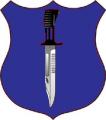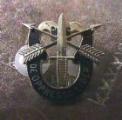Given one of the question posed on the AAB thread by a SWJ Council member (JKM) I thought it might not be a bad idea to post a document I have been sending out to units inquiring how they should plan, organize, train and to their ability educate when preparing to support the development of FSF (Foreign Security Forces).
This is rough document and I apologize for any grammatical or technical issues. I've gotten good feedback from units and others on it though. What we wanted to do is show how those planning tools we already use can be adapted to support SFA. This is a take on analytical planning methods such as the MDMP (Military Decision Making Process).
There is a section on how to organize based on conditions and a section on how to look at your resources within your unit and identify those who might better serve as advisors than others, there is a section training, and there is a smaller section on education.
There are now some good AARs floating around on those units who have been successful in these mission and if possible I'd recommend you get your hands on them - most however are in .ppt format and as such may lack the context that goes with briefing them. I welcome any feedback, and where possible we will roll it into the making of the guide I described on the Fundamentals of SFA thread in the "Working with Indigenous Forces" category here on the SWJ Discussion Board.
As with all things if its useful use it, if not scrap it - or help inform what might be changed.
Best Regards, Rob













Bookmarks